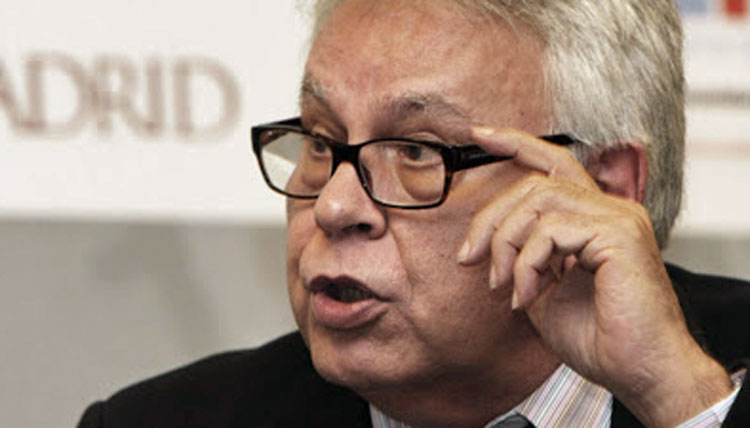Ángel Collado
Pedro Sánchez is negotiating with the Catalan secessionists an amnesty described as unconstitutional by himself, his ministers and his party until the last elections in July, without anyone with a current position in the PSOE even daring to ask for clarification, let alone an internal debate.
In the face of this silence, only the old guard of the party, with Felipe Gonzalez at the forefront, is crying out against Sanchez’s plan to remain in power thanks to the favour of the party of Carles Puigdemont, the former president of the Catalan Generalitat, a fugitive from justice since he led the separatist attempt in October 2017.
In order to secure his next investiture as prime minister, Sánchez is putting the constitutional framework and the foundations of the political transition that gave birth to the current democratic regime in Spain in 1978 up for auction, as demanded by the Catalan and Basque separatist parties that won 6 per cent of the votes in the elections.
Puigdemont, whose party achieved 1.6 per cent of popular support in the same elections, with barely 11 per cent of the vote in Catalonia, asks the head of the acting Executive, to start talking about the support of his 7 deputies in Congress, for an amnesty that “erases” all crimes, cases and pending trials of all those involved in the institutional coup since its origins in 2014. This includes high-ranking officials and political leaders accused of sedition and embezzlement of public funds, as well as those directly responsible for the riots and street destruction, the so-called CDR.
Sánchez has decided to negotiate on these assumptions that do not fit in the Constitution and mean granting impunity to the perpetrators of the coup in the face of justice. He is extending the same line of favours to the Catalan separatists with which he granted in the last legislature the pardon to the heads of ERC imprisoned by order of the Supreme Court, abolished the crime of sedition in the Penal Code or reduced the penalties for embezzlement in the Penal Code to suit the interests of his allies.
Complaints in the PSOE were then limited to a few public statements to the contrary by three regional leaders with the position of regional president: Emiliano García-Page from Castilla-la Mancha, Javier Lambán from Aragón and Guillermo Fernández Vara from Extremadura. The protests were of no consequence within the party, which unquestioningly accepts the surrender of its leader to the demands of the independentistas, previously to the Catalans of ERC and the Basque heirs of ETA’s political arm (Bildu) and now also to those of Puigdemont.
Of the three socialist regional barons, only García-Page maintained a critical tone against the alliances with the separatists of Sanchismo until the end, and was the only one to escape the electoral disaster suffered by the PSOE in the regional elections in May throughout Spain. It even won and governed with an absolute majority.
Apart from the socialist from Castile-La Mancha, only the veterans of the party, retired or without weight in the party’s structures, dare to oppose Sánchez’s negotiations with the fugitive from justice to be re-elected president of the Government without having won the elections and thanks to the votes of all the pro-independence parties.
These critics represent the entire recent history of the PSOE, since the Transition led by Felipe González’s generation, whose legacy they consider threatened with betrayal by Sánchez’s personal ambitions. González, president of the government between 1982 and 1996, and former vice-president Alfonso Guerra, already used their influence in the party to force Pedro Sánchez out of the party’s general secretariat in 2016, precisely to avoid his surrender to the nationalists.
But since he regained the general secretariat thanks to the vote of the rank and file in primary elections, Sánchez has eliminated all dissidents until he achieved absolute personal control of all party structures. The Federal Committee, the highest party body between congresses, has not debated any of his constitutional twists or mutations resulting from his alliances with the pro-independence supporters, nor does any leader in public office now dare to ask for it.
And “historical” leaders such as González, Guerra, Leguina, Nicolás Redondo Terreros or Joaquín Almunia have to resort to private media outside the pro-government conglomerate (state and private) to make public their criticism of the amnesty for the coup plotters that questions the Constitution, the judiciary and the political Transition brought about by the PSOE itself.







